Michelle Chen Huebscher
Assessing Large Language Models on Climate Information
Oct 04, 2023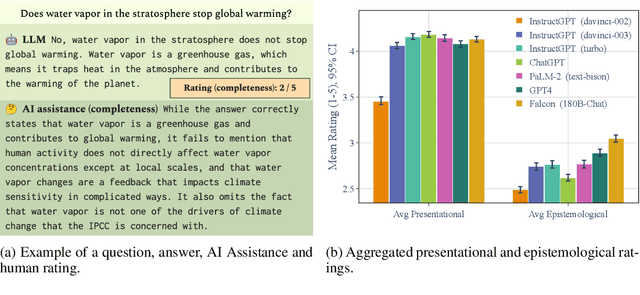



Abstract:Understanding how climate change affects us and learning about available solutions are key steps toward empowering individuals and communities to mitigate and adapt to it. As Large Language Models (LLMs) rise in popularity, it is necessary to assess their capability in this domain. In this study, we present a comprehensive evaluation framework, grounded in science communication principles, to analyze LLM responses to climate change topics. Our framework emphasizes both the presentational and epistemological adequacy of answers, offering a fine-grained analysis of LLM generations. Spanning 8 dimensions, our framework discerns up to 30 distinct issues in model outputs. The task is a real-world example of a growing number of challenging problems where AI can complement and lift human performance. We introduce a novel and practical protocol for scalable oversight that uses AI Assistance and relies on raters with relevant educational backgrounds. We evaluate several recent LLMs and conduct a comprehensive analysis of the results, shedding light on both the potential and the limitations of LLMs in the realm of climate communication.
Zero-Shot Retrieval with Search Agents and Hybrid Environments
Sep 30, 2022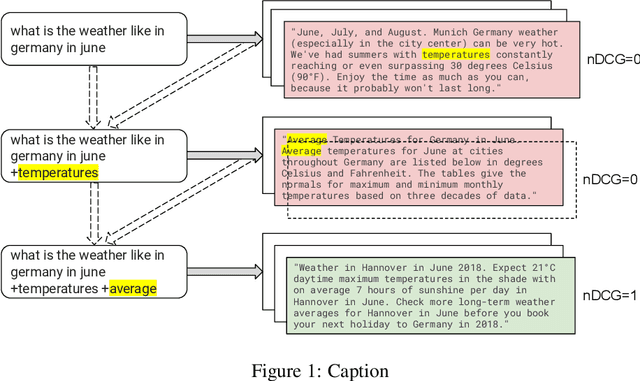
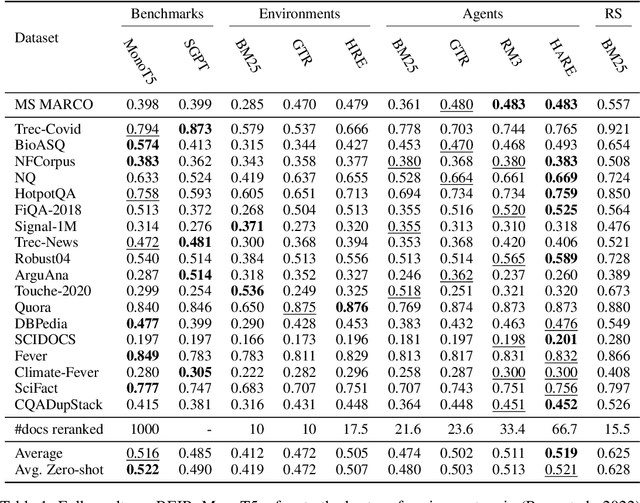
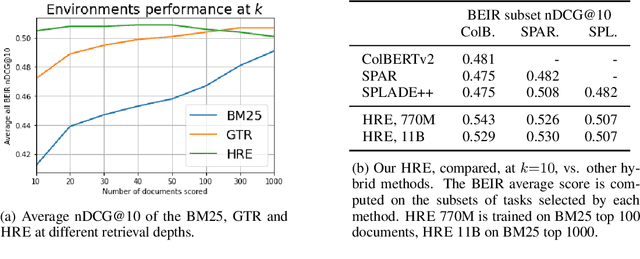

Abstract:Learning to search is the task of building artificial agents that learn to autonomously use a search box to find information. So far, it has been shown that current language models can learn symbolic query reformulation policies, in combination with traditional term-based retrieval, but fall short of outperforming neural retrievers. We extend the previous learning to search setup to a hybrid environment, which accepts discrete query refinement operations, after a first-pass retrieval step performed by a dual encoder. Experiments on the BEIR task show that search agents, trained via behavioral cloning, outperform the underlying search system based on a combined dual encoder retriever and cross encoder reranker. Furthermore, we find that simple heuristic Hybrid Retrieval Environments (HRE) can improve baseline performance by several nDCG points. The search agent based on HRE (HARE) produces state-of-the-art performance on both zero-shot and in-domain evaluations. We carry out an extensive qualitative analysis to shed light on the agents policies.
Boosting Search Engines with Interactive Agents
Sep 01, 2021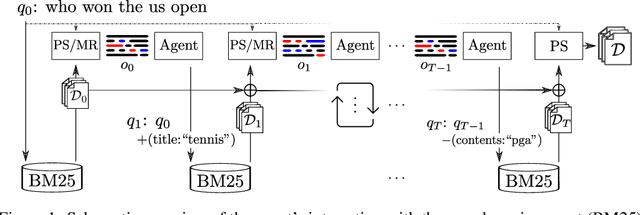
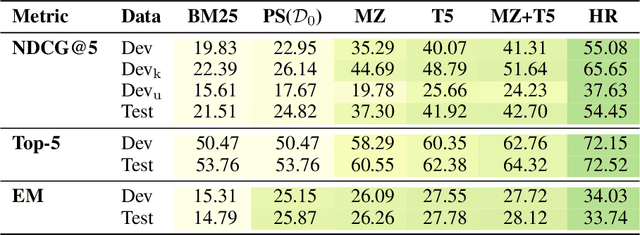
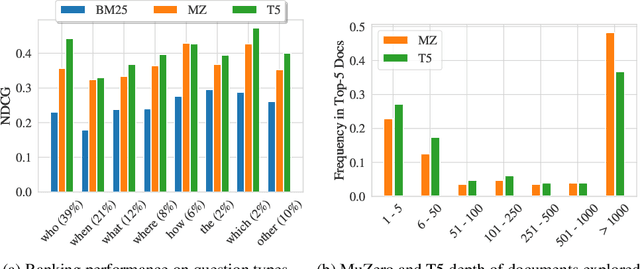
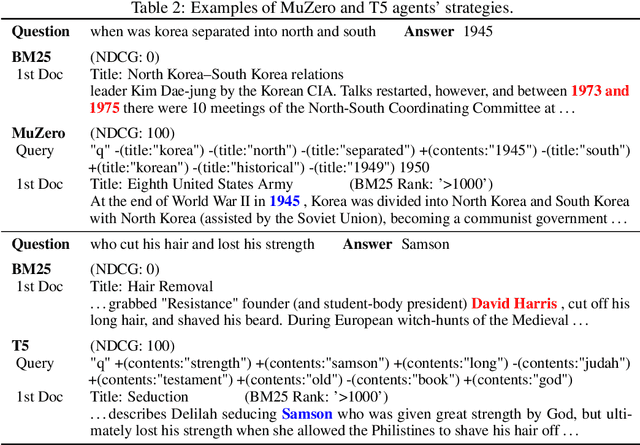
Abstract:Can machines learn to use a search engine as an interactive tool for finding information? That would have far reaching consequences for making the world's knowledge more accessible. This paper presents first steps in designing agents that learn meta-strategies for contextual query refinements. Our approach uses machine reading to guide the selection of refinement terms from aggregated search results. Agents are then empowered with simple but effective search operators to exert fine-grained and transparent control over queries and search results. We develop a novel way of generating synthetic search sessions, which leverages the power of transformer-based generative language models through (self-)supervised learning. We also present a reinforcement learning agent with dynamically constrained actions that can learn interactive search strategies completely from scratch. In both cases, we obtain significant improvements over one-shot search with a strong information retrieval baseline. Finally, we provide an in-depth analysis of the learned search policies.
Meta Answering for Machine Reading
Nov 11, 2019
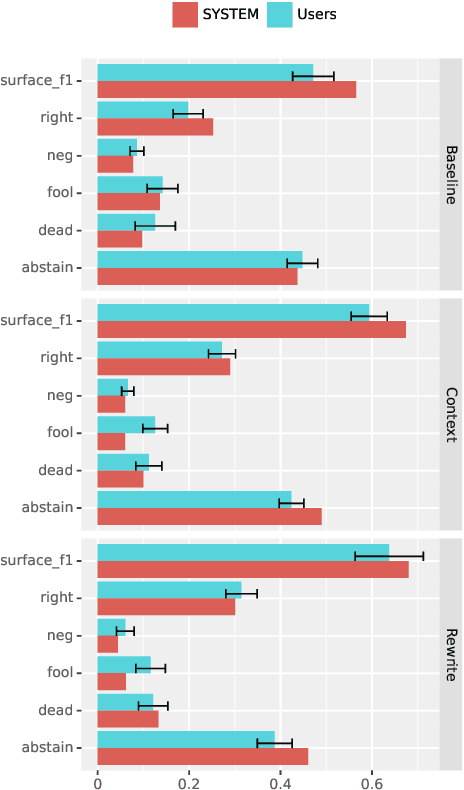

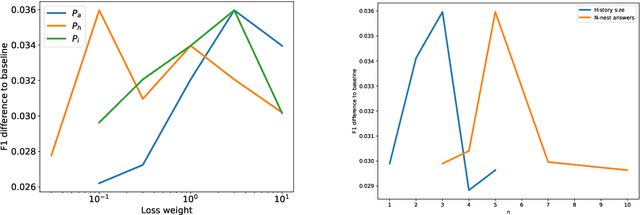
Abstract:We investigate a framework for machine reading, inspired by real world information-seeking problems, where a meta question answering system interacts with a black box environment. The environment encapsulates a competitive machine reader based on BERT, providing candidate answers to questions, and possibly some context. To validate the realism of our formulation, we ask humans to play the role of a meta-answerer. With just a small snippet of text around an answer, humans can outperform the machine reader, improving recall. Similarly, a simple machine meta-answerer outperforms the environment, improving both precision and recall on the Natural Questions dataset. The system relies on joint training of answer scoring and the selection of conditioning information.
 Add to Chrome
Add to Chrome Add to Firefox
Add to Firefox Add to Edge
Add to Edge